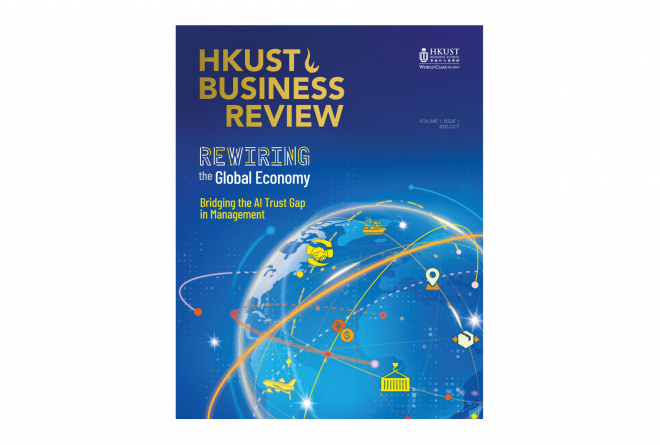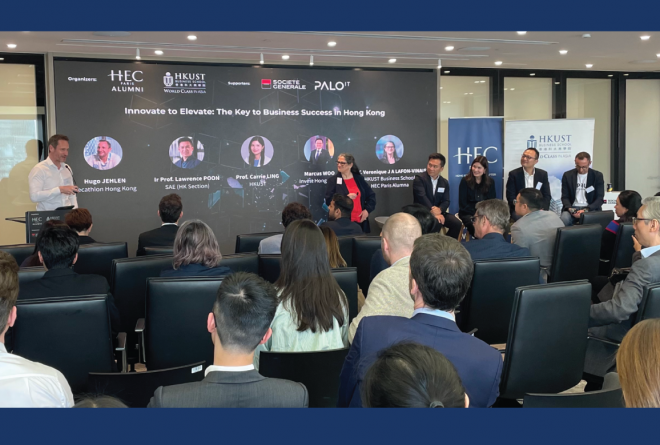
The global slowdown caused by COVID-19 disruptions has advanced digital transformation for many businesses. This gave tech-heavy industries like fintech an opportunity to grow and expand.
On September 14, HKUST and the University of Chicago co-presented the webinar “Thrive Amidst Disruptions: The Role of Fintech Post COVID-19”. The webinar attracted 10,000 viewers and featured prominent academics and leaders in fintech – Prof KC CHAN of WeLab Bank, Prof Zhiguo HE of University of Chicago (Booth School of Business), Alvin KWOCK of OneDegree, Prof TAM Kar Yan of HKUST Business School. The event was moderated by Benjamin QUINLAN, Chairman of the FinTech Association of Hong Kong (check out bios of speakers and moderator here).
Competing against traditional banks, virtual banks could provide more satisfying customer experiences and connect their products with customers better. Prof Chan gave an example of WeLab’s mission to become an advisory bank and offer the right information to help customers grow their wealth. “That’s what fintech is promising. By having data and interaction with customers, we know them better. We can provide better services,” explained Prof Chan.
Aside from trust and security concerns, Prof He shared that privacy and uncertainty issues could have led to slow adoption. Yet, he saw this as a positive opportunity for the industry to redefine and “really understand what banking is”.
Prof Tam shared results from his study on virtual banks and insurers in Hong Kong. Most respondents were interested in fintech services for convenience and innovative ways to conduct transactions. He predicted, in time, the public’s sentiment towards fintech would change and the adoption rate would increase.
Kwock pointed out that digital banking and insurance transactions were the fastest growing segments in 2020 after e-commerce. COVID-19 catalyzed the need for businesses to succeed by going digital. Kwock compared digital and traditional banking business models and pointed out a digital model “takes a long time to learn, build product iteration and wastage before getting it right.”
While fintech is built upon technology, Quinlan commented, “fintech is still a journey of people”. The industry requires people with the right soft skills, including management and communications, to drive the transformation.
Although changing the public’s mindset about fintech services takes time, the COVID disruptions indicated that mindsets could change when forced. Soon, fintech will surely dominate our everyday lives whether it’s in the form of a fully digitalized set of financial services.
For more upcoming events of the HKUST Business School, please visit here.






